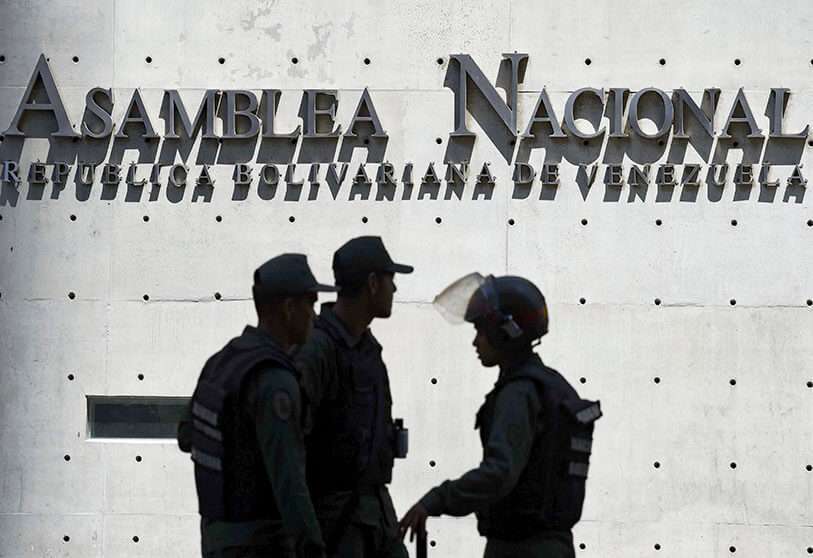Deployment of EU mission marks start of election campaign in Venezuela

On Thursday, Venezuela began the electoral campaign for the regional and local elections on 21 November, while the European Union Election Observation Mission (EU EOM) deployed 44 of its members throughout the country, under the supervision of the head of the operation, MEP Isabel Santos.
After meeting with the National Electoral Council (CNE), Santos explained that a "core team" of eleven people is also in Venezuela, and that 34 more observers will join later, as well as a delegation of 12 parliamentarians, diplomats - without specifying how many - and various observers who will be contracted in the country.
"We hope to arrive on 21 November with 100 or more observers, which is a large mission, compared to the numbers of previous missions in Venezuela and other countries," said the Portuguese MEP.
She said the mission - the first EU mission to Venezuela in 15 years - will observe "the whole electoral process", from the campaign to "the moment of voting", as well as the vote count, and also "if there is a complaint" in the days after.
On 23 November, the EU-EOM will present a preliminary report with initial conclusions and, two months later, the final report will arrive, during which time the contributions of the observers will be evaluated in depth, which will serve to see if any corrections and recommendations are necessary for future elections.
The mission will be in 22 of the 23 states, in addition to Caracas. In Amazonas, only a team of short-term observers will be present in the days leading up to the vote, due to logistical and security conditions.
At the start of the operation, Santos saw off the observers who left for their respective departments in vehicles which, due to the scarcity of petrol - particularly noticeable outside the capital - were carrying jerry cans of fuel tied up where less dangerous goods are usually located.

At the start of the election campaign, which will run until November 18 at 00:00 local time (4:00 GMT on the 19th), the president of the Venezuelan parliament, the pro-Chávez Jorge Rodríguez, promised that the United Socialist Party of Venezuela (PSUV) will defeat the opposition at the ballot box, through the vote.
"We know that we will defeat them through elections," said the head of the legislature at a rally in which he devoted much of his speech to criticising opposition candidates who left the country, arguing political persecution, and returned "now" to compete for office in the elections.
Likewise, the governor of Miranda state and ruling party candidate for re-election, Héctor Rodríguez, affirmed that the PSUV candidates will not abandon the voters who give them their vote.
"I can say without a doubt, with absolute confidence that here in this assembly, here in this state, here in this land where we were born, we are the men who truly love it, who never left, who never gave up," he said.
For his part, opposition leader and two-time presidential candidate Henrique Capriles urged people to vote "against the disaster" that, in his opinion, President Nicolás Maduro represents.
"Venezuelans have to speak out against the disaster of Maduro and the incapable people who accompany him," he wrote on Twitter.
Capriles considered it necessary for the government's detractors to mobilise and organise in order to "regain the strength to continue the recovery of Venezuela".
The elections on 21 November will be attended by the majority of the opposition, including the sector headed by Juan Guaidó, which will be the first time since 2017 that the anti-Chávez bloc will go to the polls.

The president of the National Electoral Council (CNE), Pedro Calzadilla, on Wednesday urged candidates and political organisations to "strictly" respect the regulations governing the election campaign.
"The CNE has launched an extensive monitoring plan, aimed at monitoring (the campaign)," he said in a message broadcast on state-run Venezolana de Televisión (VTV).
Calzadilla called on the media to maintain "information balance" and offer equal coverage and similar treatment to the messages of all candidates and their organisations, something that VTV failed to do on the first day of the campaign by giving unequal time to the different parties.
While the opposition had limited space for their promotional material, the ruling party occupied the vast majority of the time with rallies, live interventions and advertisements whose duration was up to five times longer than that of their opponents.










